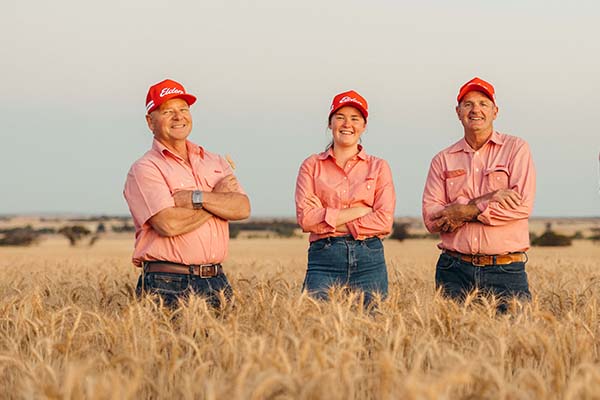Australian agribusiness Elders (ASX:ELD) has today released its results for the 12 months to 30 September 2023.

Elders recorded a strong FY23 earnings performance despite adverse market headwinds, including softening input prices for key agricultural chemicals, and significant decline in livestock prices, as well as inflationary pressures and rising interest rates. Elders' product, channel and geographical diversification was key to mitigating those headwinds, which contributed to Elders' second highest EBIT in the last 10 years.
Elders reported:
- EBIT of $170.8 million, down 26 per cent (pc) on the prior year
- Statutory net profit after tax (NPAT) of $100.8 million, down 38pc compared to the prior year
- Underlying return on capital (ROC) of 16.0pc which exceeds the target benchmark of 15pc in the Eight Point Plan
- Operating cash flow was a net inflow of $169.2 million, resulting in a cash conversion of 163pc, which exceeds the target benchmark of 90pc set out in Elders' capital management framework
The Directors have determined to pay a dividend of 23.0 cents per share, 30pc franked.
In FY23, Elders entered the final year of its third Eight Point Plan, targeting 5pc to 10pc growth in EBIT and EPS through the agricultural cycles whilst maintaining strong financial discipline to generate a compelling ROC of at least 15pc.
Managing Director and Chief Executive Officer, Mark Allison said Elders' financial performance was resilient in FY23.
"The year was met with challenging trading conditions and despite this, Elders achieved its second highest EBIT result in the last 10 years," Mr Allison said.
"This resilience was achieved due to our geographically diverse multi-product portfolio, which generated strong average earnings across the group.
“We did not compromise on financial discipline to achieve this result, with operating cash flow at a new inflow of $169.2 million, resulting in a cash conversion of 163pc, which well exceeds the target benchmark of 90pc set out in our capital management framework.
“This allowed us to declare dividends totalling 46 cents per share.”
Elders remained committed to business transformation projects which are expected to deliver short and long-term benefits, including Systems Modernisation and Elders Wool.
“The new Elders Wool business reached significant milestones with practical completion of the Ravenhall facility in Victoria and the opening of the Rockingham facility, delivering an improved level of customer service in Western Australia,” Mr Allison said.
Elders also today released its FY23 Sustainability Report which evidenced its work throughout the year to deliver industry leading sustainability outcomes across a range of areas, including climate change, waste management, and community impact and investment.
“A highlight this year was the establishment of Thomas Elder Sustainable Farming (TESA) to improve access for farmers to technology, information and markets that help them to grow productivity whilst operating under more sustainable farming models,” Mr Allison said.
“We also made significant progress in our waste management activities, diverting 46,000 chemical containers from landfill and collecting 2.18 tonnes in plastic bags for recycling.”
Looking forward, Mr Allison said that FY24 presents significant opportunities for Elders to grow and support customers through the company’s fourth Eight Point Plan.
"We expect some of the market headwinds experienced in FY23 to continue into FY24 but we are well placed to pursue opportunities for further growth and diversification. As the most trusted agribusiness brand amongst farmers, we will continue to deliver value to our customers, existing and new."
“Our priority is supporting the sustainable growth of the agriculture industry and the wellbeing of our rural communities. This means we remain focused on ensuring access to high quality products and advice that optimise efficiency and profitability, particularly in times where markets and commodities are more challenging.”